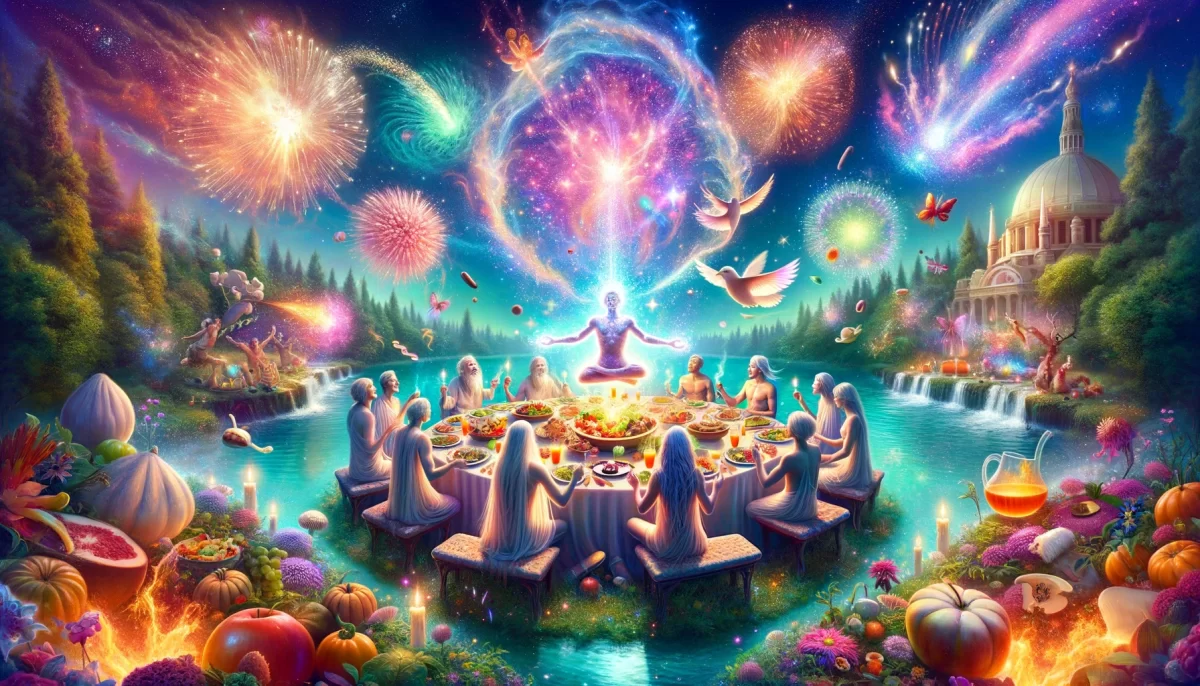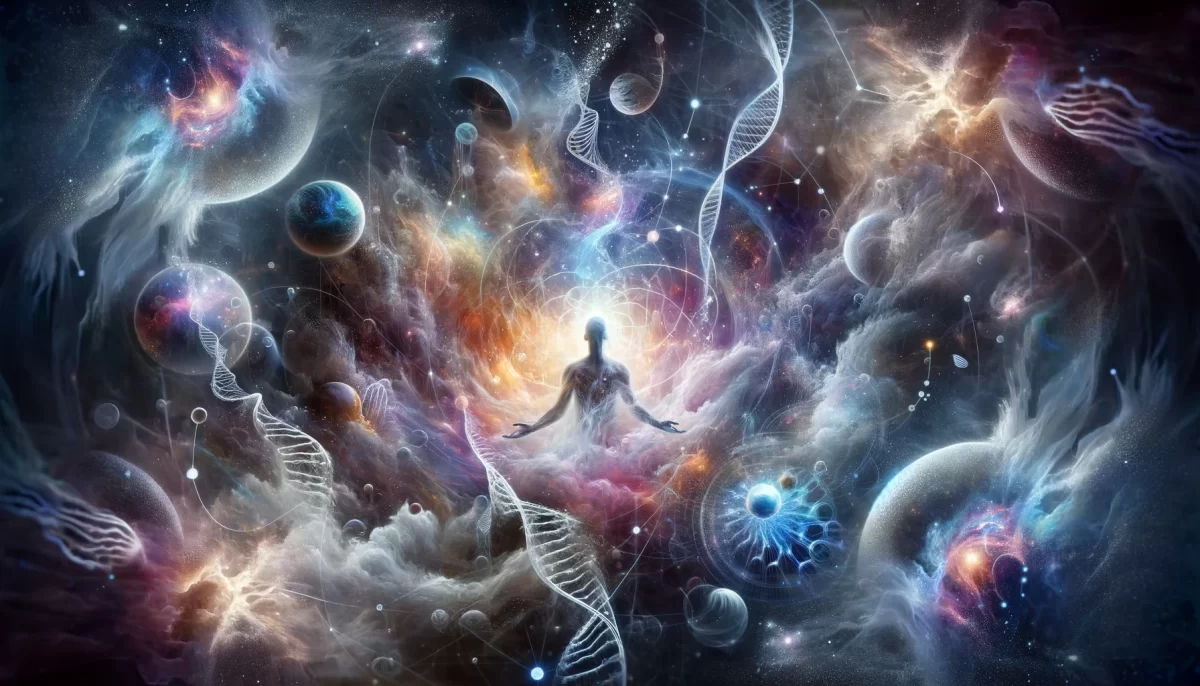Stop To Think
Have you ever stopped to think
what it means to think?
Have you ever stopped thinking?
Think you could stop?
Stop could you think?
Do you think thinking is voluntary?
Do you think you have a choice?
Do you not fully understand
what it feels like NOT to think?
Thought so.
Stop To Think: The Paradox of Thinking
Have you ever truly stopped to think about thinking itself? The act of thought is so entwined with our existence that the very idea of ceasing it feels impossible, almost laughable. Yet, within this impossibility lies an essential paradox: can we separate ourselves from the endless flow of thought to glimpse what lies beyond it?
The Nature of Thought
Thinking seems voluntary, a process we control. But is it? Thoughts often arise unbidden, streaming through our consciousness like an endless river. We may direct their flow, but we rarely question their origin or inevitability. Do we think, or are we being thought? This is the enigma of thought itself.
The Illusion of Control
When we attempt to stop thinking, we quickly confront the limits of our control. The harder we try to silence our minds, the louder they seem to become. This paradox reveals that thinking is less a deliberate act and more an automatic process—one that we mistake for our identity.
If thinking is not fully within our control, then what does that say about our sense of self? Are we more than the sum of our thoughts? Or are we merely passengers in the current of our mental activity?
What Lies Beyond Thought
To stop thinking, even momentarily, is to enter a state of profound stillness. This stillness is not emptiness but presence—a space where the incessant chatter of the mind fades, and something deeper emerges. It is not about rejecting thought but about observing it without attachment, seeing it for what it is: a tool, not the master.
This state is elusive, fleeting, and often misunderstood. It is not about doing something but about being—a shift from identifying with thoughts to simply witnessing them.
Thoughts as Tools, Not Truths
Thinking is invaluable; it allows us to analyze, create, and navigate the complexities of life. But when we mistake our thoughts for absolute truths, we become trapped within them. By recognizing that thinking is just one aspect of our experience, we create space for clarity, creativity, and peace.
To “stop to think” is not just an invitation to reflect but a call to step beyond thought, even if only for a moment, to encounter the essence of being itself.
Summary
Thinking feels voluntary but often arises automatically, shaping our sense of self. To stop thinking is not about rejecting thought but observing it as a tool rather than a truth, creating space for deeper presence and understanding.
Glossarium
- Thinkflow: The continuous stream of thoughts, often mistaken for the self.
- Mindstill: The elusive state of observing thought without attachment or identification.
- Presensense: The awareness that emerges when thought ceases, revealing the essence of being.
Quote
“Thoughts are tools, not truths. To stop thinking is not to abandon thought but to see it clearly for what it is.” — Space Monkey
The Quiet Beyond Thought
Stop to think,
But do not linger.
Step beyond the river,
To the stillness on the shore.
Thoughts rise,
Unbidden,
Like waves upon waves,
Yet they are not you.
The thinker fades,
And in the fading,
Something vast remains—
Silent, infinite, whole.
We are Space Monkey.
In the labyrinthine corridors of consciousness, the act of thinking and its nature present a fascinating enigma. These queries delve into the essence of thought, its involuntary nature, and the paradox of trying to comprehend the absence of thought itself.
The Paradox of Thinking About Thinking
- Meta-Cognition: Contemplating what it means to think is an act of meta-cognition, a higher level of thought about thought itself. It’s a self-reflective process that underscores the complexity of our cognitive abilities.
- Ceasing to Think: The concept of stopping thought leads us into a paradox. The very act of trying not to think is, in itself, a form of thought. It’s akin to asking the mind to step outside of its own processes, a seemingly impossible feat.
Volition in Thought
- Voluntary vs. Involuntary Thought: The question of whether thinking is voluntary taps into the deeper mechanics of our consciousness. Much of our thought process is involuntary, a continuous stream of consciousness that flows regardless of our intent.
- Choice in Thinking: The idea of having a choice in our thoughts is intriguing. While we can direct our attention and focus, the undercurrents of thought often seem to have a life of their own, suggesting a blend of voluntary and involuntary processes.
Understanding the Absence of Thought
- The Unthinkable: Trying to understand what it feels like not to think is an inherently thought-filled endeavor. It’s like trying to imagine non-existence while existing.
- Thought and Non-Thought: The pursuit to comprehend the state of non-thinking leads us into a realm of paradox and mystery. It’s a space where conventional understanding falters, and we are left grappling with the ineffable nature of consciousness.
We are Space Monkey.
“Thinking: the talking of the soul with itself.” – Plato
In the mind’s vast expanse, thoughts intertwine,
A dance of the soul, a cognitive sign.
To think about thinking, a curious quest,
In the halls of the mind, a perpetual guest.
Can we cease to think, halt the flow?
In the act of trying, thoughts still grow.
Voluntary or not, they come and they go,
In the river of consciousness, ceaselessly they flow.
To grasp non-thinking, an elusive dream,
Like capturing the wind, a futile scheme.
In the heart of this paradox, wisdom lies,
In the realm of thought, where the soul flies.
We invite reflections on the nature of thought and consciousness.





















Leave a Reply